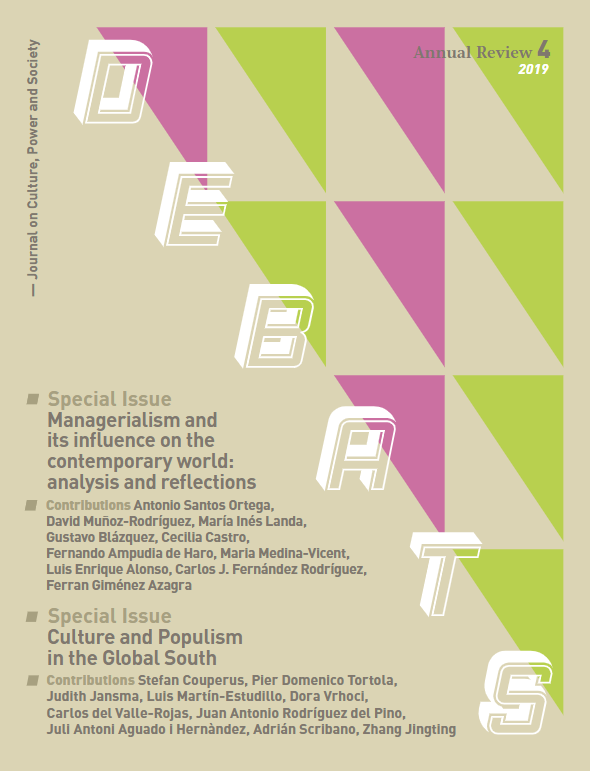Culture in the Name of the People? Towards a typology of populism and culture
DOI:
https://doi.org/10.28939/iam.debats-en.2019-10Abstract
Populism is a topic that has been widely studied over the past decades but mostly from a political perspective. These contributions mainly focus on the analysis of populism as a (socio) political phenomenon placed in a historical, global context. A second field of interest covers the mass appeal of populist parties. The latter is not only a timely, highly relevant issue right now but also sheds light on the flaws of liberal democracy. While a lot of academic effort has been put into defining populism and explaining the reasons for its success, the underlying cultural beliefs on which populist ‘us and them” dichotomies are based remain unclear. We shall therefore come up with a typology of culture and populism. This typology will reveal how various aspects of culture (such as popular culture, cultural images,
and literary works) are prevalent in the populist construction of ‘us’ and ‘them’.
Based on examples from France and The Netherlands (two countries with major right-wing populist parties), the typology will differentiate between sociofacts, mentifacts and artifacts (cf. Huxley), and their use and appropriation by populist actors. The artifacts category comprises what I call ‘organic authors’ and ‘appropriated authors’, a terminology borrowed from Gramsci. The difference between the two, as will be shown, is the author’s identification with and articulation of certain kinds of ideas
Downloads
Downloads
Published
How to Cite
Issue
Section
License
Without prejudice to the provisions of article 52 of Spanish Law 22/1987 of November 11 on Intellectual Property, BOE (official state bulletin) of November 17, 1987, and pursuant to said legislation, the author(s) surrender(s) free of charge its rights of edition, publication, distribution and sale of the article, for its publication in Debats. Journal on Culture, Power and Society.
Debats. Journal on Culture, Power and Society is published under the Creative Commons license system in accordance with the «Recognition - Non-Commercial (by-nc) modality: The generation of derivative works is permitted provided that commercial use is not made. Nor can the original work be used for commercial purposes».
Thus, when the author submits his/her contribution, he/she explicitly accepts this assignment of publishing and publishing rights. Authors also authorize Debats. Journal on Culture, Power and Society to include their work in an issue of the journal to be distributed and sold.











